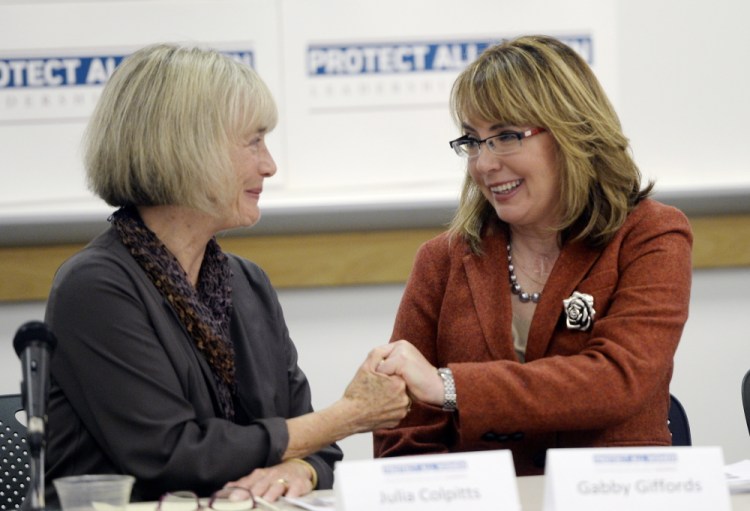The headlines screamed all the way from South Africa – Reeva Steenkamp shot to death by her boyfriend Oscar Pistorius!
A beautiful model killed by a world-famous athlete – how sensational!
Well, no, the ugly truth is that it’s commonplace. It’s the kind of thing that happens every day.
Every day in the U.S., women are shot in their homes by their partners. A few are not killed, just shot; many more are not shot, just scared witless, bullied, intimidated, raped or humiliated at gunpoint.
The technical legal issue often is the same as in the Steenkamp-Pistorius case: Did he intend to shoot her or someone else? But the outcome always is the same: The woman is shot and often killed.
Athletes and fans live on stats, so here is some Brady Campaign and Violence Policy Center data on not living:
• More than 1,700 women are murdered in the U.S. every year – 94 percent of them by a male acquaintance.
• A woman is 16 times more likely to be murdered by a man she knows than by a stranger.
• More than 50 percent of murders of women are with a gun – predominantly by far with a handgun.
• A gun in the home is 22 times more likely to be used to shoot a resident of the home than it is to shoot an intruder.
Women are so predominantly the victims of domestic violence that it is no surprise that they are assuming leadership of the national movement to enact more sensible gun laws.
For 25 years, Sarah Brady has led the Brady Campaign; Shannon Watts is the founder and president of Moms Demand Action; former U.S. Rep. Gabby Giffords founded and leads Americans for Responsible Solutions (and recently chose Maine to launch a national tour for better gun laws); Sue Hornik is executive director of States United to Prevent Gun Violence; and U.S. Sen. Susan Collins crossed party lines to support stronger federal laws.
Certainly men must join this movement, but at the same time, women can do much more. For starters, women are better equipped to address this issue than are men. Too many men, for cultural (and possibly Freudian) reasons, consider handgun ownership as proving (or enhancing) their masculinity.
Women are more sensible; many even recognize that men who feel a need to enhance their masculinity in this manner probably have good basis for their insecurity. A bigger gun does not make a better man.
Macho behavior depends on recognition by women, that’s the whole point. The schoolyard bully practice of “open-carry” would end overnight if women responded to it with a raised eyebrow and a comment along the lines of “What deficiency are you compensating for?” More women might sneer at the notion that a gun in the glove compartment is cool, or that a gun in the nightstand is a token of virility, or that Father needs another gun more than Mother needs a new dishwasher.
In the long run (which may not be that long, in fact), we don’t need a war of the sexes so much as we need mutual respect and common sense.
Men and women alike must recognize the profound contribution of lax gun laws to our currently unacceptable level of domestic violence. No punishment of the offender heals the wound of the offense, and no preventive measures are more effective than a change in culture.
More sensible gun laws – laws that respect a responsible hunting tradition and the constitutional right to own a gun but that rigorously and absolutely bar gun sales to convicted criminals, domestic abusers, the mentally ill and irresponsible – are supported by very wide margins and by gun owners, National Rifle Association members and the public.
But it is women who will overcome the entrenched opposition of gun manufacturers and their lobby, the NRA, by changing our lenient gun culture, by telling the men in their lives to stop being boys and by demanding change that will save the lives of women across America, starting now.
Reeva Steenkamp should become a beacon to a better world.
— Special to the Press Herald
Send questions/comments to the editors.


